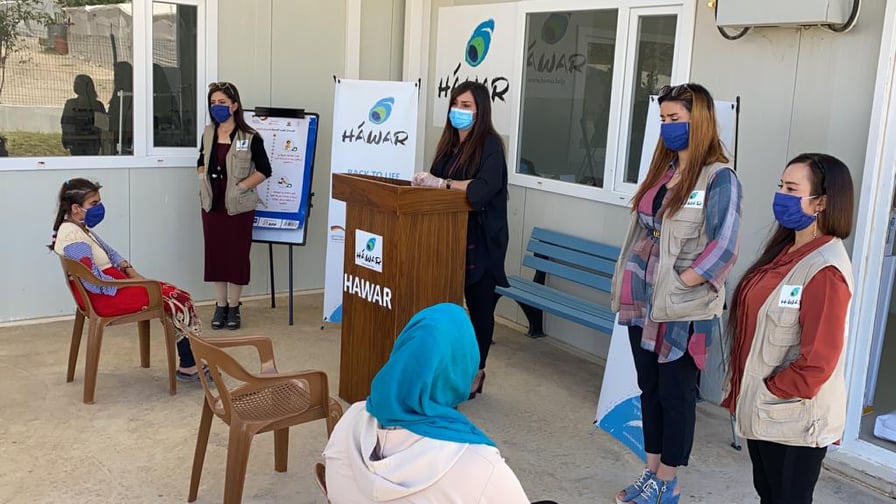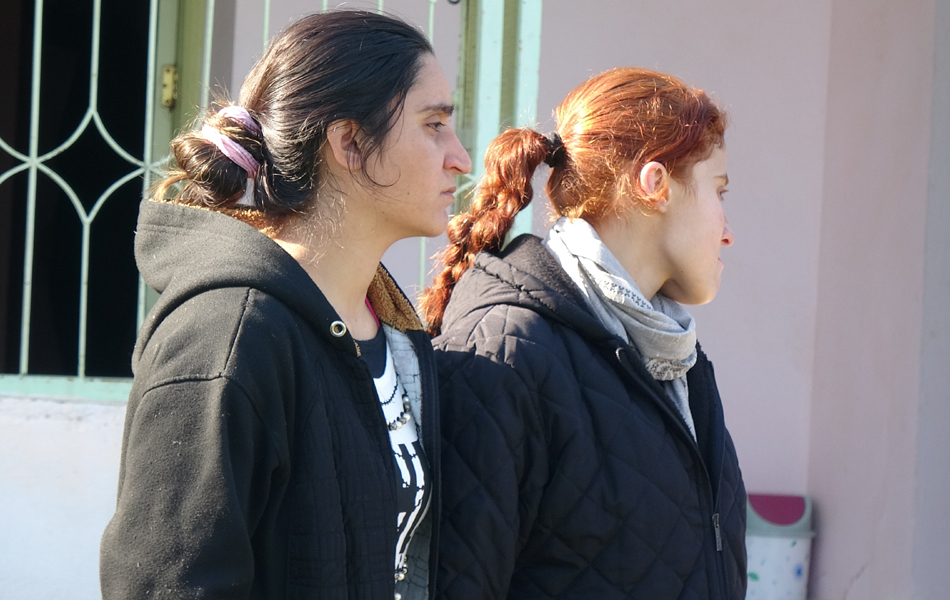Traumas, depression and other sorts of mental distress are increasing among displaced women, as reaching health professionals is difficult due to measures taken against the spread of the COVID-19 virus.
Among the taken measures is shutting roads between displacement/refugee camps and urban centres. This has impeded most women who are in need of mental healthcare (especially Yazidis who survived ISIS captivity) to get the help they need.
“For more than four years, I suffer from mental health problems. I took medicine for a year, and gradually I was getting better. Some NGOs would find ways to reach us and help us in the camp. But with the Coronavirus outbreak, that is no more the case,” said Nasrin Hasan Rasho.
our worry has been about losing mental health treatment
25-year-old Nasrin escaped the clutches of ISIS five years ago, then settled at the Mam-Rashan camp, where she still resides. She told KirkukNow: “Conditions are bad here. It is true that everyone is afraid of the Coronavirus, but our worry has been about losing mental health treatment.”
Nasrin hopes the NGOs would resume helping them in the camps as they did before the COVID-19 outbreak.
Thousands of Yazidi women and girls were kidnapped and subjected to sexual slavery by ISIS. Those who escaped or rescued are in need of constant medical attention in order to have a chance at overcoming trauma and depression.

Duhok, 2020 – Dr. Aylin Abdulsalam during a presentation for IDPs on mental health – Photo from HAWAR.help
Aylin Abdulsalam, a psychotherapist for the NGO HAWAR.help, says that depression and mental illnesses are increasing among displaced women. Her conclusion is based on a research which compared statistics from October 2019 and April 2020.
The research was a collaboration between HAWAR.help and Dr. Jan Ilhan Kizilhan, dean of the Institute of Psychotherapy and Psychotraumatology at the University of Duhok.
Dr. Abdulsalam told KirkukNow: “The research shows an increase of 11% in anxiety disorder, 10% post traumatic stress disorder, 6% depression and 47% in suicidal thoughts among displaced women in April this year in comparison with October last year.”
The NGO opened a mental healthcare centre at Rwanga Camp in 2018 to help displaced women, especially those who had to endure ISIS captivity.
Curfews and prolonged confinement inside the tents […] are the causes behind the increase in trauma, depression and other mental complications
“Curfews and prolonged confinement inside the tents, which prevented them from getting necessary care in time, are the causes behind the increase in trauma, depression and other mental complications,” said Dr. Abdulsalam
Dr. Abdulsalam opines that the fear regarding the COVID-19 outbreak is also another reason for the deterioration of people’s mental health.
The Yazidi community was subjected to massacres at the hands of ISIS militants, who also kidnapped and subjected six thousand women and children to (sexual) slavery. The fate of half of the those kidnapped is still unknown.
Duhok, 2020 – Kabartu Camp during lockdown – Photo by KirkukNow
“I often can’t fall a sleep at night, can’t stop thinking. I worry if I get infected with the Coronavirus, and what would that be like for me. Or I keep thinking about which region I should go to, after [leaving] the camp,” said Nuré Jirdo.
Nuré Jirdo was displaced from Shingal and lives at the Sharia Camp for six years now. She has been receiving mental health treatment for four years, in order to cope of what she had experienced during the assaults by ISIS.
I’m not able [to reach healthcare professionals] to get the treatment and medicines I need
“My mental condition was getting better before the Coronavirus outbreak, but it is getting worse ever since. I’m not able [to reach healthcare professionals] to get the treatment and medicines I need; I get panic attacks,” added Nuré, who is a single mother of six, and whose husband was killed by ISIS militants.
Help from NGOs can hardly reach Nuré due to the measures against the COVID-19 outbreak.
Most of the Yazidi community from Shingal and the rest of Nineveh province are still displaced and unable to go back to their home towns and villages due to lack of security and services. They form 30% of the total of 787,000 displaced persons residing in the Kurdistan Region of Iraq.
Maysar Adani, a spokesperson for the Yezidi Rescue Office, told KirkukNow: “Most of those rescued from the hands of ISIS are in need of treatment for their mental health. Especially the children, because ISIS taught them murder, beheading and an extremist ideology.”
Adani says that despite the urgency of intense healthcare, the help coming the government and NGOs is inadequate in that aspect.





